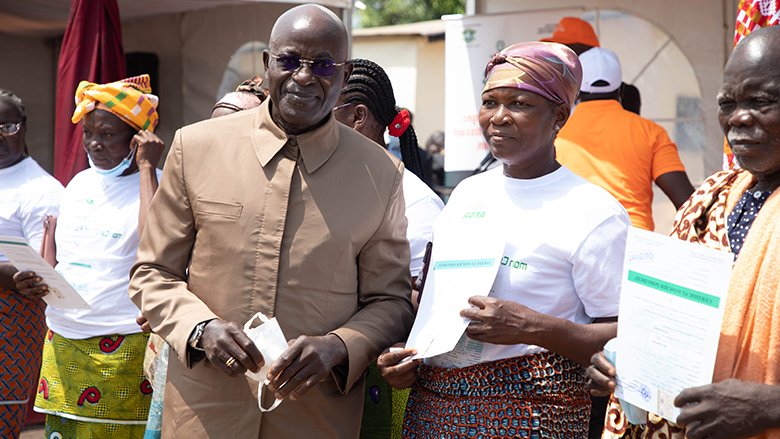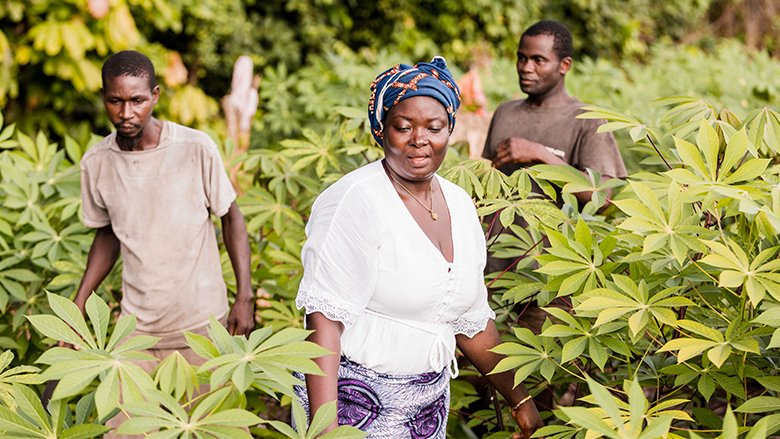Known by various names such as the “West African Eldorado”, the “land of hospitality”, the “second homeland”, the “country for all”, and the “land where everything grows”, Côte d’Ivoire stands as the world's leading producer of cocoa, cashew, cola nuts, and more. These diverse names find their roots in the generosity of its soil. While Ivorians historically offered this rich and benevolent land as gifts and token of hospitality to their “brothers” from neighboring countries and migrants until the 1990s, the aftermath of the 2010-2011 post-electoral crisis has cast rural land conflicts as a backdrop to human tragedies and deep divisions threatening the nation's peace and security. The once generous land has become a source of discord.
In Bécédi-Brignan, a cosmopolitan village located about 140 km north of Abidjan, Adou Yapi Félix, the village chief, recalls: “We used to receive and adjudicate an average of three to five land dispute cases per week”. The situation is even more complex in the west of the country, bordering Guinea and Liberia, severely affected by the crisis and clashes over land have led to violence and deaths. “The fire smolders beneath the ashes” says Bamba Cheick Daniel, Director of the Rural Land Agency (AFOR). The former Minister of Territorial Administration, tasked in 2016 by the government to manage rural land, sees in these land disputes the seeds of a conflict with devastating consequences for Cote d’Ivoire.
41,000 land certificates and contracts signed.
Until 2018, the country provided 4,600 land certificates (1%) against hundreds of millions of hectares of land. A few months after the AFOR operationalization, the Ivorian authorities launched the Land Policy Improvement and Implementation Project (PAMOFOR) with the overarching goal of issuing 53,400 land certificates to landowners or tenants, delineate 400 villages, and facilitate the signing of 10,000 land use contracts between landowners and non-owner agricultural operators.
However, two major obstacles stood in the way: the existing four-step process showed its limitations and proved costly, in addition to the thorny issue of other nationals who had been using lands they didn’t own, for several years.
With technical support and a 50 million dollars funding from the World Bank through the International Development Association (IDA), PAMOFOR introduced the '4 in 1' approach, eliminating fees, training over 10,000 land agents, and engaging with populations about the importance of securing their lands. Between 2018 and 2023, over 41,000 landholders received either a land certificate (for owners) or a formal land use contract, benefitting an estimated 190,000 people in their households. It now takes half as much time to deliver a land record than in past years. Beyond a simple land security mission, PAMOFOR has become an “instrument for social cohesion,” says Zorro Armelle Yougone, sub-prefect of Yakassé-Attobrou, and helping solve conflicts within families and communities.


